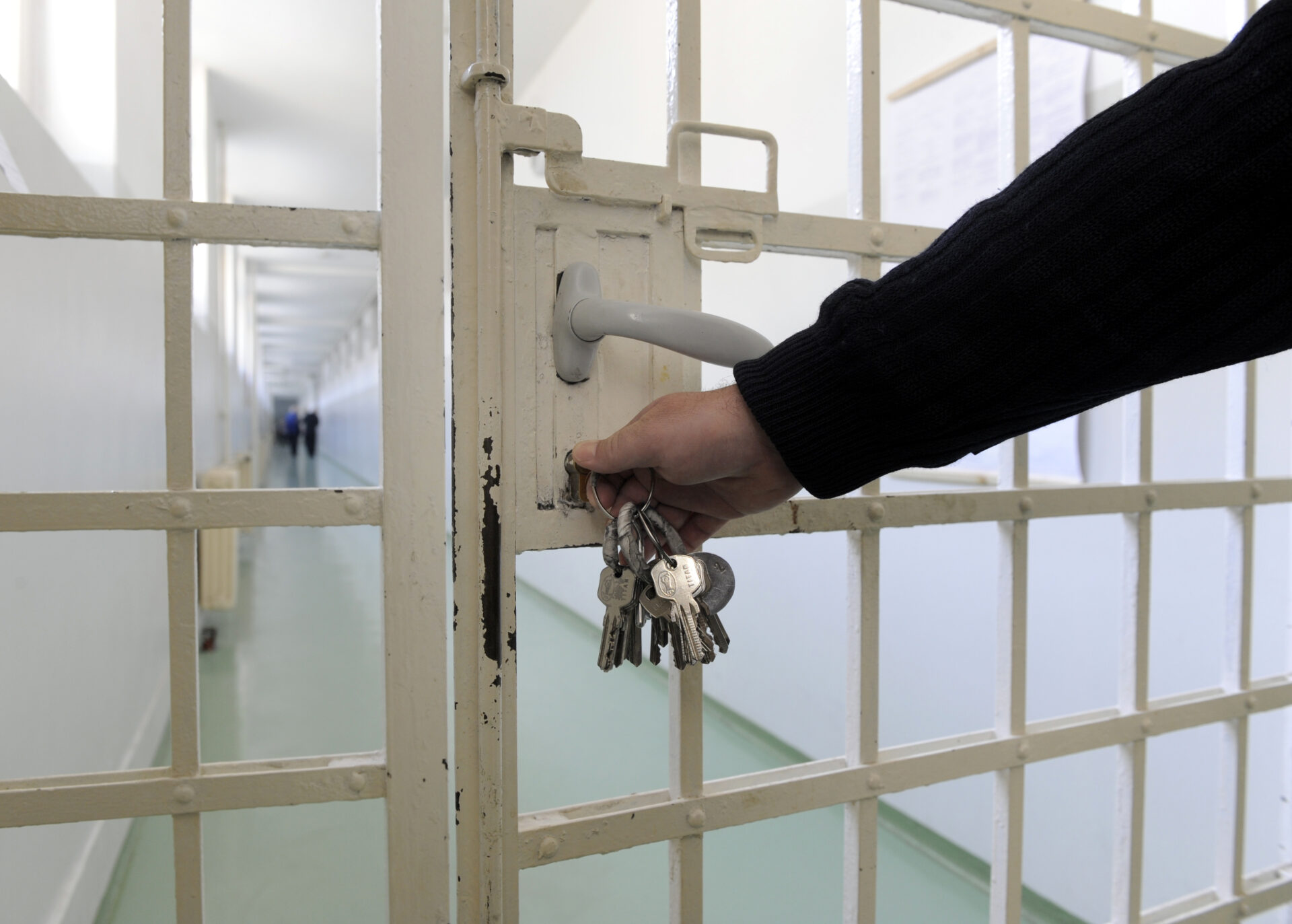State staffers and advocates for people with disabilities say the state likely is spending “millions of dollars” on involuntarily committing people to inpatient mental health facilities for unnecessarily long periods of time.
In a presentation to the Joint Standing Committee on the Judiciary on Monday, Michael Folio — assistant general counsel for the state Department of Health and Human Resources — said that it’s been 12 years since the state last updated its laws for involuntary commitment.
Folio says several pharmacological solutions have emerged in the last decade to treat people with various mental illnesses and cognitive disabilities.
“Since 2007, there have been at least five therapies that have been developed. They are proven effective, safe pharmacological therapies that can treat people with psychosis, schizophrenia and chemical dependency,” Folio said. “And if those [therapies] are administered, these people then could possibly be discharged.”
Folio had no bills for the committee to consider on Monday during its December interim meeting. For the time being, he said the DHHR is studying ways it can update state law, to minimize the number of people in its care who have involuntarily been placed in a psychiatric ward.
“The goal is to ensure that the clinical director can exercise appropriate clinical discretion, and that we can minimize the number of inpatient patients in the state,” Folio said.
West Virginia had 317 ‘forensic patients’ earlier this month, according to a report from the state Office of Health Facilities. Forensic patients refers to individuals who were found not guilty of a crime, due to a mental, development or intellectual disability.
The OHF reported on Dec. 11 that 240 of those individuals were placed in a mental health facility. Seventy-seven are still classified as forensic patients, but the state has connected them to other treatment options.
Overspending On Health Care
Considering the range of modern therapies available to forensic patients, Jason Parmer with the group Disability Rights of West Virginia said the state is likely overspending in this area.
“Doing the math, this is millions of dollars we’re spending to keep people in hospitals, when they’re not presently dangerous,” Parmer said.
Folio estimated that treatments outside of state-run facilities, sometimes called community placements, could cost $350 per individual, per day, whereas placing an individual in a state-run facility costs approximately $850 a day.
“And then we pay even more to place people in the private psychiatric hospitals, because we have patients in our state hospital that should be in the community, taking up that space,” said State Forensic Medical Director John Justice.
Financial disclosures with the West Virginia Health Care Authority show that in 2018 the state spent $925 daily on each patient it sent to Highland Clarksburg Hospital, a private facility. The state spent $1,300 per patient per day at another private facility, River Park Hospital in Huntington.
Anticipating Legal Dilemmas
According to Parmer, the number of forensic patients in West Virginia has been rising since updates to state code in the 1990s, when legislators agreed to give courts the authority to discharge forensic patients, instead of hospital physicians.
“The effect of this change has been that some courts order patients to stay in a hospital even when they are not currently mentally ill and dangerous,” Parmer wrote in an email. He added that the amendment violates the U.S. constitution.
“I think the current code … is vulnerable to a legal challenge,” Folio told the Judiciary Committee. “There have been a number of class action suits that have been filed around the country that have challenged other statutes.”
An Update on Sharpe Hospital
Bob Crouch, Secretary of the DHHR, told another joint committee later Monday that changes at the William R. Sharpe, Jr., Hospital in Weston, Lewis County, may also change the way the state deals with its forensic population.
Sharpe is a 200-bed, state-run facility that exclusively treats involuntarily committed forensic and civil patients, the latter of which are not involved with the criminal justice system.
In late 2017, the federal Centers for Medicare and Medicaid Services found the hospital had been providing inadequate treatment to the people committed there. CMS ultimately revoked the hospital’s ability to bill the Medicaid or Medicare for services.
The decision from CMS that year has led the state-run hospital to spend thousands more dollars in relocating patients, many of whom would’ve otherwise used Medicaid or Medicare to cover their treatment.
Before losing Medicaid, the state spent nearly $18 million in 2016 on paying other hospitals to take 1,030 civil patients and 40 forensic patients, according to a report from the West Virginia Legislative Auditor’s office.
By contrast, the state spent $30.8 million in 2018 to move 1,267 civil patients and eight forensic patients.
CMS re-instated the hospital’s ability to bill Medicaid in August. Crouch said he expects this will reduce some of what the state has been spending on committing forensic and civil patients to other hospitals.
According to Crouch, the ordeal “caused us to focus on these issues, on that forensic population, and make some significant changes at that hospital.”
Going forward, he told lawmakers he looks forward to focusing more on the state’s forensic population, and ways to minimize their stays at state-run facilities.
